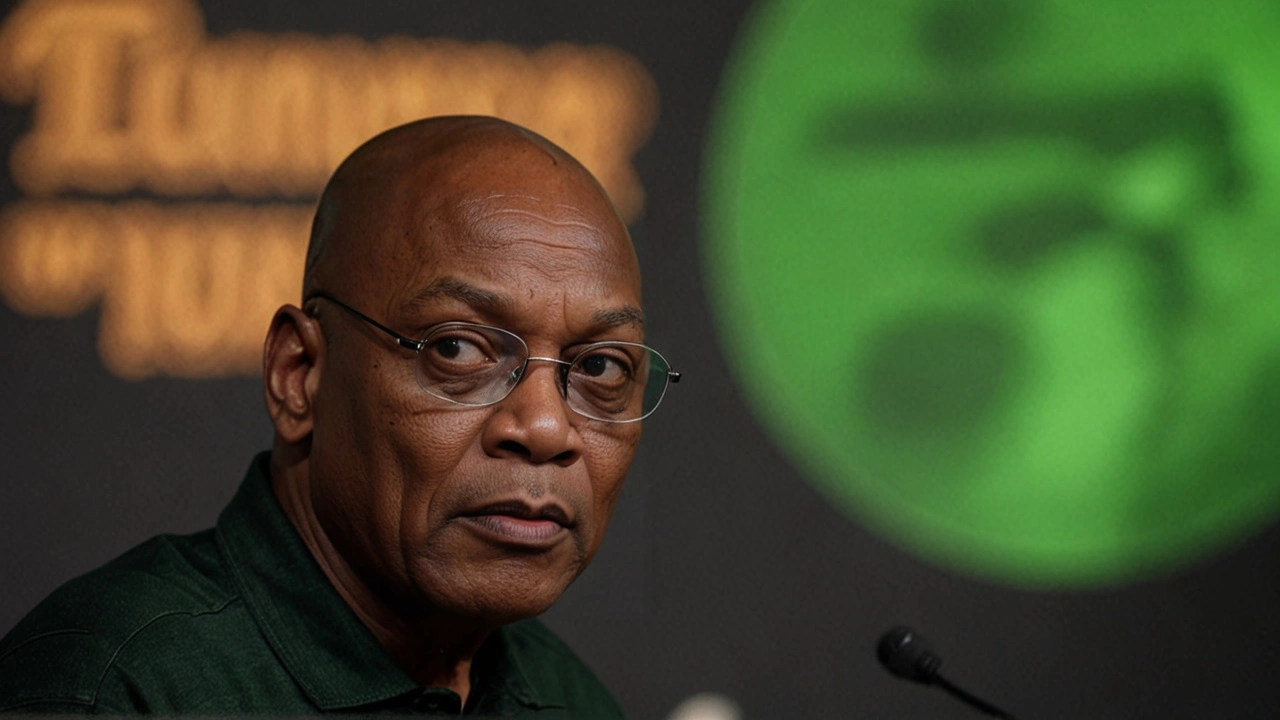Jacob Zuma's Absence from ANC Disciplinary Hearing
In a surprising move, former South African President Jacob Zuma did not attend the scheduled disciplinary hearing by the African National Congress (ANC). Citing network problems at his Nkandla residence, Zuma managed to avoid the session meant to address his alleged misconduct. This incident marks yet another chapter in the long series of legal and political dramas surrounding the former president who ruled South Africa from 2009 until 2018.
The hearing was supposed to take place with Zuma's presence, but instead, his representative, ANC veteran Tony Yengeni, attended in his place. The disciplinary process, originally postponed due to security concerns before the elections, was eventually rescheduled, but to no avail as Zuma cited technical issues preventing his presence. Given the importance of the hearing, the absence has raised many eyebrows within the ANC and across the political spectrum.
Zuma's Enthusiasm for Parliament
Contrary to his no-show at the disciplinary hearing, Zuma has expressed keen interest in attending the joint parliamentary session set to occur in the evening. The session is a significant event where President Cyril Ramaphosa is expected to outline the government's priorities. What caught the attention of many is Zuma's enthusiasm to participate, marking his first visit to Parliament since ANC's decision to recall him in 2017. His last official duties as a Member of Parliament were shadowed by numerous controversies ranging from allegations of corruption to his contentious relationship with the country's judiciary.
Zuma won't be the only former president attending the session; former leaders such as Thabo Mbeki and Kgalema Motlanthe have also been invited. The presence of these noteworthy political figures only adds to the gravity of the occasion. Moreover, National Assembly Speaker Thoko Didiza emphasized that substantial security measures would be in place to ensure an incident-free sitting, reflecting the government's awareness of the potential for tension and unrest.
The Continuing Drama: ANC and Jacob Zuma
Zuma's relationship with the ANC remains complex. His tenure as the country's president was marred with allegations of corruption and state capture, leaving a significant impact on his reputation and his standing within the party. The disciplinary hearing forms part of an ongoing effort by the ANC to clean its ranks and deal with lingering allegations of corruption and misconduct. Originally postponed due to security concerns, the hearing's rescheduling indicates the ANC's intent to proceed with a thorough investigation despite the various challenges.
The postponement of the disciplinary hearing to July 23 means Zuma and his legal team have additional time to prepare. There are as many questions as there are answers. Why is Zuma eager to attend Parliament but reluctant to address his disciplinary hearing? Could there be strategic reasons behind his decisions? As always with Zuma, speculation abounds.
Security Measures and Political Atmosphere
Given the current political climate, security measures are a focal point for the upcoming parliamentary session. National Assembly Speaker Thoko Didiza reassured the public that every precaution has been taken to ensure the event runs smoothly. The emphasis on security highlights the tension that still exists within South African politics. Despite these potential flashpoints, the parliamentary session aims to be a platform for government priorities rather than another episode in the ongoing Zuma saga.
The ANC's focus on accountability and reform is undoubtedly critical for the party's credibility. As South Africa grapples with various socio-economic challenges, the integrity of political leadership remains crucial. The ANC disciplinary hearings and the parliamentary sessions are both essential for the party's image and the country's political stability.
The extended period until July 23 will likely test both Zuma and the ANC. The public and party members alike will be keen observers as events unfold, curious whether Zuma's enthusiasm for parliamentary attendance translates into a willingness to address his disciplinary issues head-on. With the ANC intent on moving forward with the process, one can't help but wonder if this marks a turning point in the ongoing narrative surrounding one of South Africa's most controversial political figures.
The Broader Impact on South African Politics
Jacob Zuma's no-show at the ANC disciplinary hearing and his anticipation to attend the parliamentary session encapsulate his enduring influence on South African politics. His contradictory actions shed light on the broader complexities within the party and the country's political landscape. Zuma's previous presidency came with significant economic and political consequences, and his current actions continue to affect the ANC and the country's governance.
The ANC finds itself at a crossroads, navigating between addressing historical corruption and presenting a unified front for the future. Zuma's activities are a microcosm of the broader struggles within the party. Therefore, the outcomes of his disciplinary proceedings and his behavior in Parliament will be crucial in shaping not just his political career, but also the perception of the ANC's commitment to accountability and integrity.
Moreover, the incident brings to light the ongoing challenges of ensuring justice and maintaining political stability in post-apartheid South Africa. As Zuma's case progresses, it offers a lens through which we can examine the effectiveness of South Africa's democratic institutions and the rule of law. It also provides insight into how former leaders are treated within the political hierarchy and the lengths to which they can go to avoid accountability.
This moment is not just a reflection on Zuma but an opportunity for the ANC and South African society to reaffirm their dedication to democratic principles and transparent governance. The interplay between attending Parliament and avoiding disciplinary action is a testament to the intricate and often tumultuous world of South African politics.
